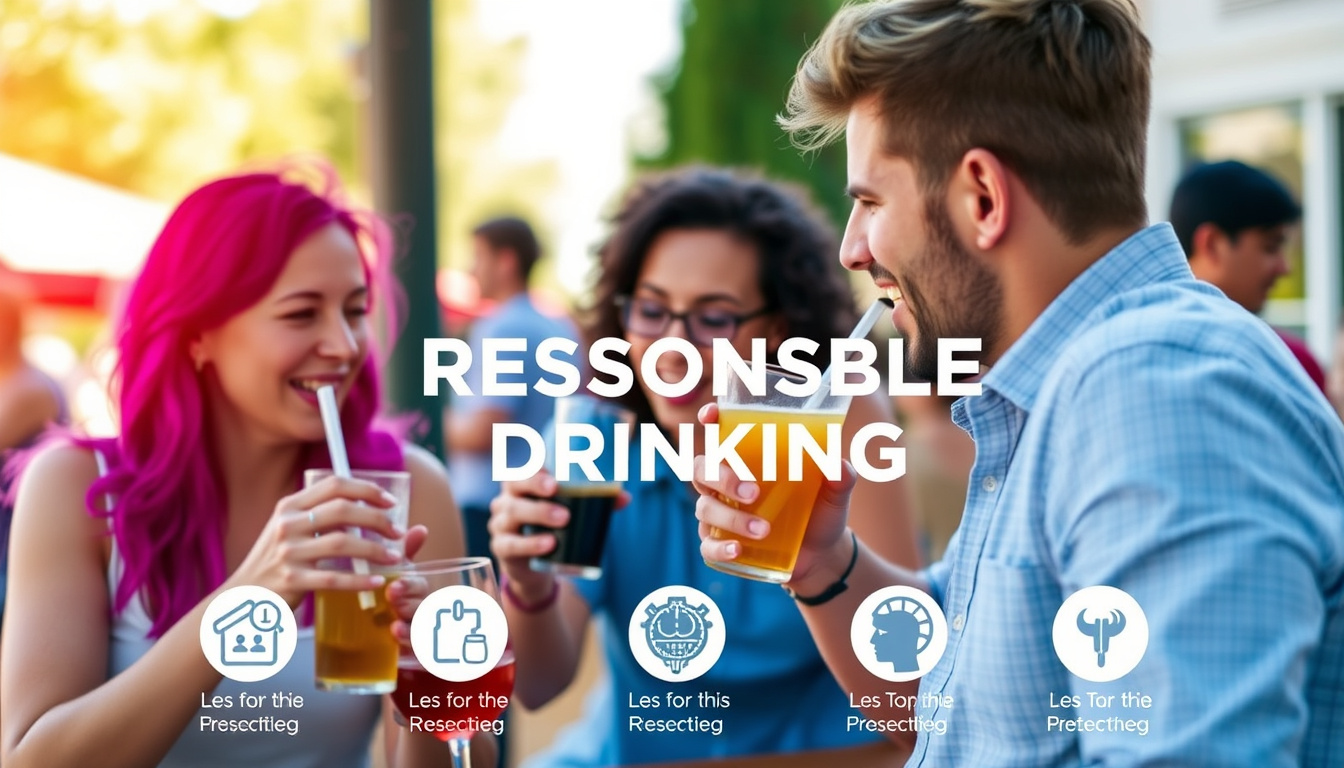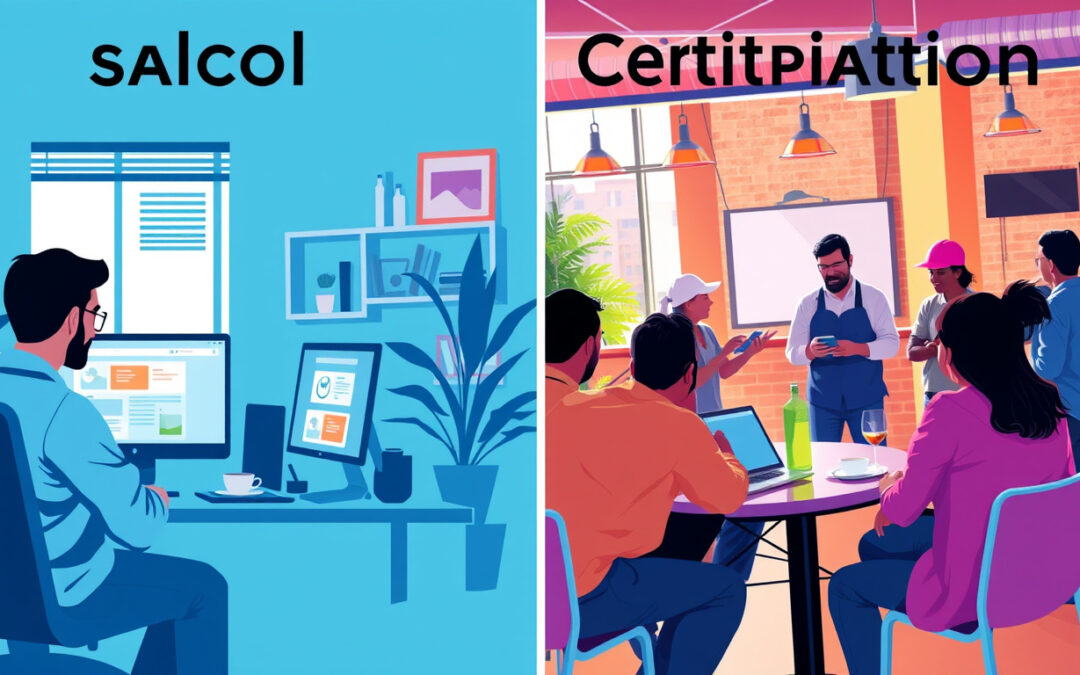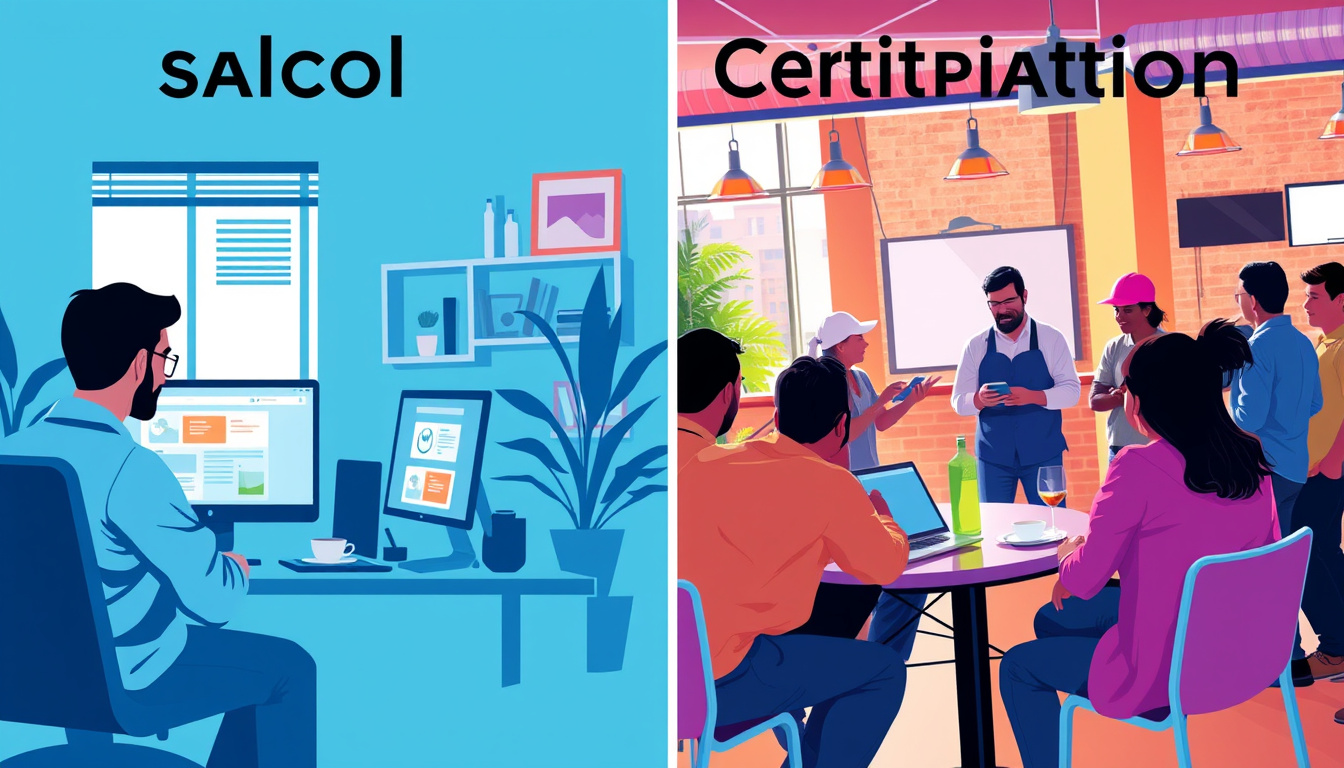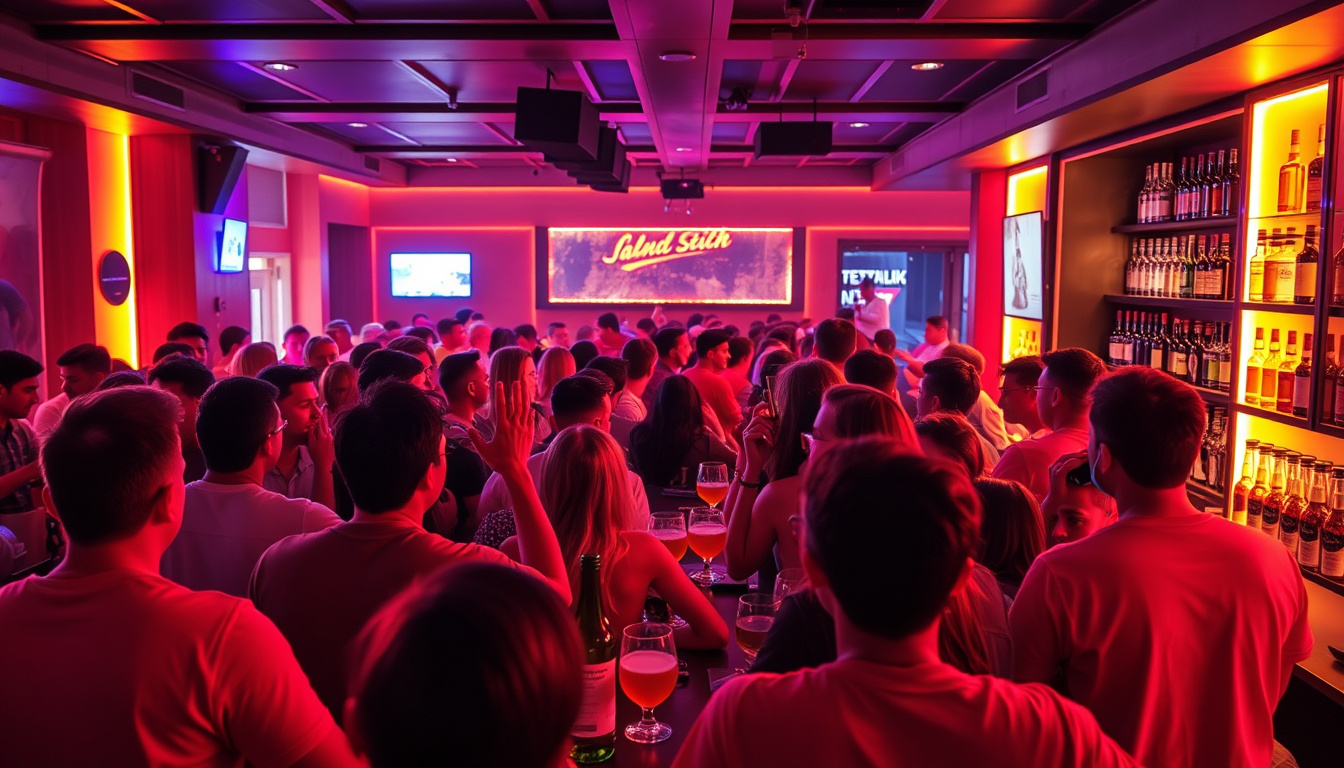
BLOG
In today’s social landscape, alcohol is often a central ingredient at celebrations, gatherings, and casual get-togethers. While moderate drinking can be enjoyable and socially engaging, it is crucial to prioritize alcohol safety and responsible drinking habits to protect yourself and others. Ensuring alcohol safety involves understanding how alcohol affects your body, knowing your limits, and taking proactive steps to prevent harm. This article explores essential tips for these purposes, empowering you to make informed choices and foster safer social environments.
Why Is Alcohol Safety Important?
Alcohol safety is vital because excessive or irresponsible drinking can lead to a variety of harmful outcomes, including accidents, injuries, poor decision-making, and long-term health problems. According to the Centers for Disease Control and Prevention (CDC), alcohol-related incidents are a leading cause of preventable injuries and death worldwide. Promoting responsible drinking helps reduce these risks, encourages healthier behaviors, and enhances overall well-being during social interactions.
Understanding the Effects of Alcohol on Your Body
Before diving into safe drinking practices, it’s important to understand how alcohol impacts your body. When consumed, alcohol affects your central nervous system, impairing judgment, coordination, and reaction times. These effects vary based on factors like age, weight, gender, metabolism, and tolerance levels. Recognizing these impacts helps you better gauge your limits and avoid adverse outcomes.
Key Tips for Ensuring Alcohol Safety and Responsible Drinking
1. Know Your Limits and Practice Moderation
One of the foundational principles of alcohol safety is knowing how much alcohol your body can handle comfortably. Generally, moderation means up to one drink per day for women and up to two drinks per day for men, according to the CDC. Excessive drinking increases the risk of accidents, aggressive behavior, and health issues. To stay within safe boundaries:
- Be honest with yourself about your tolerance.
- Avoid peer pressure to drink more than you can handle.
- Pace your drinks, taking a break of at least 1 hour between beverages.
2. Stay Hydrated and Nourished
Alcohol causes dehydration and can lead to hangovers and impaired decision-making. To counteract these effects:
- Drink plenty of water before, during, and after consuming alcohol.
- Eat a substantial meal before drinking to slow alcohol absorption.
- Choose foods rich in healthy fats and proteins for sustained energy.
3. Never Drink and Drive
Driving under the influence is perhaps the greatest danger associated with alcohol consumption. It significantly impairs your ability to operate a vehicle safely. To prevent this:
- Arrange for a designated driver who abstains from alcohol.
- Use public transportation, taxis, or rideshare services.
- Make alternative plans in advance if you plan to drink.
4. Look Out for Your Friends and Be Responsible
Being attentive to others’ well-being is a critical aspect of alcohol safety. If you notice someone showing signs of intoxication or distress:
- Offer to help them get home safely.
- Avoid pressuring others to drink more.
- Know the signs of alcohol poisoning, such as confusion, vomiting, seizures, or unconsciousness, and seek emergency help immediately.
5. Protect Yourself from Unsanitary or Unsafe Drinking Environments
Unsafe environments can contribute to risky behaviors or exposure to tampering. To protect yourself:
- Purchase alcohol from reputable sources.
- Do not accept drinks from strangers.
- Keep an eye on your drink to avoid tampering.
6. Be Aware of Alcohol Interactions with Medications
Alcohol can interact negatively with various medications, reducing effectiveness or causing harmful side effects. Always check with your healthcare provider or read medication labels before drinking. When in doubt, abstain from alcohol to ensure safety.
Practical Tips for Responsible Drinking in Social Settings
Enjoying alcohol responsibly in social settings involves proactive strategies. Here are some practical tips:
- Set a limit for yourself before you start drinking.
- Alternate alcoholic beverages with water or soft drinks.
- Use smaller glasses or drinks to control portion sizes.
- Stay engaged in activities that don’t revolve around drinking.
- Be prepared to leave or take a break if feeling overwhelmed.
The Role of Education and Community in Promoting Alcohol Safety
Creating a culture of responsible drinking extends beyond individual actions. Community programs and educational campaigns play a vital role. Schools, workplaces, and local organizations can offer resources that:
- Inform about the effects of alcohol.
- Promote responsible drinking behaviors.
- Support those struggling with alcohol misuse.

Research indicates that education and stigma reduction significantly improve alcohol safety outcomes (source). Encouraging open conversations and making resources accessible are essential steps toward safer communities.
Frequently Asked Questions About Alcohol Safety
1. What are the best practices for alcohol safety during social events?
Best practices include setting personal drinking limits, pacing your drinks, staying hydrated, arranging transportation home beforehand, and watching out for friends’ well-being.
2. How can I identify if someone has alcohol poisoning?
Signs of alcohol poisoning include confusion, vomiting, seizures, slow or irregular breathing, unconsciousness, and skin that is clammy or bluish. Immediate medical attention is necessary if these symptoms appear.
3. What are some effective ways to promote responsible drinking in a group?
Encourage moderation, offer non-alcoholic options, designate a non-drinking leader or buddy, and foster an environment where guests feel comfortable declining additional drinks.
Conclusion: Prioritize Alcohol Safety for a Better Future
Ensuring alcohol safety and responsible drinking is a shared responsibility that benefits individuals and communities alike. By understanding your limits, practicing moderation, and looking out for others, you can enjoy social occasions while minimizing risks. Remember that making informed choices and embracing responsible behaviors contribute to healthier lives, safer environments, and a more positive culture around alcohol consumption. For more detailed guidance and support, consult reputable sources such as the CDC or local health organizations. Stay safe and drink responsibly!
Disclaimer: This article is for informational purposes only and does not substitute professional medical advice. Always consult healthcare professionals regarding alcohol-related concerns.

BLOG
In the state of Louisiana, workers in the hospitality and food service industries are often required to obtain alcohol certification to ensure responsible service and compliance with state regulations. This certification is crucial not only for legal reasons but also for maintaining a safe environment for patrons. As technology continues to evolve, many workers face the decision of whether to pursue Online Alcohol Certification vs In-Person: Which is Better for Louisiana Workers? This article delves into the options available, exploring the advantages and disadvantages of both online and in-person certification pathways to help workers make an informed choice.

Key Takeaways
- Online alcohol certification offers flexibility and convenience for Louisiana workers.
- In-person certification provides hands-on training and immediate feedback from instructors.
- Both certification methods meet Louisiana’s alcohol safety standards.
- Workers should consider their learning style when choosing between online and in-person options.
- Cost, time commitment, and accessibility are important factors in the decision-making process.
Introduction to Alcohol Certification in Louisiana
The state of Louisiana has a rich cultural history and vibrant social scene that heavily integrates alcohol consumption. As such, obtaining proper alcohol certification has become essential for those working in the hospitality and service industries. In recent years, the demand for flexible training options has led to a significant rise in the debate between online alcohol certification versus in-person training. Each method comes with its unique advantages and challenges, making it crucial for Louisiana workers to understand the key differences and determine which is better suited for their professional needs. This article delves into the benefits and drawbacks of both online and in-person alcohol certification, helping workers in Louisiana make informed choices that align with their schedules, learning styles, and career aspirations.
The Advantages of Online Alcohol Certification
When it comes to obtaining certification in responsible alcohol service, workers in Louisiana often find themselves debating between online alcohol certification and in-person training. Both methods offer their unique advantages, but online alcohol certification has rapidly gained traction due to its flexibility and convenience. For those juggling work and personal commitments, online courses allow individuals to study at their own pace, eliminating the need to adhere to a strict schedule. This approach not only makes it easier to balance responsibilities but also caters to different learning styles, as many online platforms offer interactive materials, videos, and quizzes. Furthermore, with the ongoing pandemic and a shift towards digital solutions, online certification ensures that workers can complete their training safely from the comfort of their homes. In contrast, in-person sessions can provide immediate access to instructors and networking opportunities, which some may find beneficial, but may not be as accessible for everyone due to location and travel requirements. Ultimately, choosing between online alcohol certification and in-person training will depend on individual preferences and circumstances, making it crucial for Louisiana workers to consider which method aligns best with their lifestyle and learning needs.
‘The best way to predict the future is to create it.’ – Peter Drucker

The Benefits of In-Person Alcohol Certification
In the ongoing debate of online alcohol certification vs in-person options, particularly for Louisiana workers, there are distinct benefits that emerge from choosing in-person training. One prominent advantage is the interactive nature of face-to-face learning, where attendees can engage directly with instructors and peers, fostering a dynamic educational environment. In-person certification often includes hands-on experiences and demonstrations that are crucial for mastering the practical aspects of alcohol service, such as pouring techniques and responsible serving practices. Moreover, local regulations and cultural nuances specific to Louisiana can be better conveyed in a classroom setting, where instructors can share real-life scenarios and insights that online courses might overlook. Lastly, obtaining a certification in person can facilitate networking opportunities with industry professionals, enhancing job prospects and creating connections that are invaluable for career advancement in the hospitality sector.
Comparative Analysis: Online vs In-Person
When it comes to obtaining alcohol certification in Louisiana, individuals frequently wonder whether to pursue online alcohol certification vs in-person classes. Both methods offer unique advantages and potential drawbacks tailored to different learning styles and schedules. Online courses provide the flexibility of learning at your own pace, making them particularly appealing for busy workers or those who prefer to study from home. On the other hand, in-person classes facilitate direct interaction with instructors and peers, fostering a more engaging learning environment that can enhance retention of knowledge, especially for those who thrive on face-to-face communication. Additionally, Louisiana’s state regulations and employer requirements may influence the decision, as some establishments may prefer or even mandate certification from in-person training sessions. Ultimately, the choice between online alcohol certification and in-person courses depends on individual preferences, learning styles, and specific career goals in the vibrant hospitality industry of Louisiana.

Challenges and Considerations
When it comes to obtaining the necessary qualifications for responsible beverage service, Louisiana workers often find themselves weighing the pros and cons of online alcohol certification versus the traditional in-person approach. One major challenge with online certification is the potential for a lack of engagement; without a physical instructor, workers might struggle to grasp critical concepts, especially those that require nuanced understanding, such as laws surrounding alcohol service and safety protocols. Furthermore, some employers in Louisiana may question the validity of online certifications compared to in-person training, which can lead to complications in job acquisition. On the other hand, online alcohol certification offers unparalleled convenience and flexibility, allowing busy workers to complete their training at their own pace and on their own schedule. This can be particularly advantageous for those juggling work and personal commitments. However, individuals should also consider the importance of a hands-on approach that in-person classes provide, such as role-playing scenarios and real-time feedback from experienced instructors, which can enhance retention and application of the material. Ultimately, determining whether online alcohol certification or in-person training is better for Louisiana workers depends on individual learning styles, employer preferences, and availability of resources.
Conclusion: Making the Right Choice for Workers
In conclusion, the choice between online alcohol certification and in-person training for Louisiana workers largely depends on individual circumstances and preferences. Online alcohol certification offers the convenience of flexible scheduling and the ability to complete training at one’s own pace, making it ideal for those with busy schedules or who prefer to learn in a self-directed manner. On the other hand, in-person training provides a structured environment, opportunities for hands-on interaction, and immediate access to an instructor for questions and clarifications, which can be beneficial for those who thrive in a traditional classroom setting. Ultimately, both options have their unique advantages, and the best choice hinges on the learner’s learning style, time constraints, and comfort with online platforms. By carefully considering these factors, Louisiana workers can make an informed decision that best suits their needs.

BLOG
In today’s fast-paced and ever-evolving world, ‘documentation’ serves as a critical component across various industries and disciplines. Whether you are in software development, project management, or academia, understanding the significance of comprehensive documentation can greatly enhance clarity, efficiency, and communication. This article delves into the importance of documentation, explores the diverse types used in different fields, outlines best practices for effective documentation, and examines the tools and technologies that can streamline the documentation process. Furthermore, we will discuss the necessity of maintaining and updating documentation to ensure its relevance and accuracy. Finally, we will highlight case studies that exemplify successful documentation strategies, illustrating how thoughtful documentation can lead to tangible benefits. Join us as we uncover the multifaceted world of documentation and its crucial role in organizational success.


Best Practices for Effective Documentation
Effective documentation is crucial for organizations seeking to streamline processes and ensure clear communication. To achieve exceptional documentation, consider implementing these best practices. Firstly, consistency is key—utilize a standardized format to help readers navigate content easily. Secondly, incorporate visuals such as charts and diagrams to enhance comprehension and retention of information. Additionally, ensure that the language is clear and concise; avoid jargon unless absolutely necessary to keep your audience engaged. Regularly updating documentation is also vital to reflect any changes in procedures or systems, thereby ensuring relevance and accuracy. Lastly, solicit feedback from users to continually refine the documentation process, making it more effective over time. By prioritizing these strategies, you can significantly enhance the quality of your documentation and foster better collaboration within your team.
Tools and Technologies for Documentation
In today’s fast-paced digital landscape, effective tools and technologies for documentation play a crucial role in streamlining processes and enhancing productivity. From collaborative platforms like Google Docs and Microsoft OneNote to specialized software such as Confluence and Notion, these solutions offer diverse functionalities tailored to meet the varying needs of teams and organizations. Not only do they facilitate real-time collaboration, but they also enhance accessibility, ensuring that critical information is readily available to all stakeholders. Additionally, integrating project management tools like Asana and Trello can significantly improve the documentation workflow by allowing teams to attach relevant documents directly to tasks. Utilizing the right tools and technologies for documentation not only saves time but also ensures that your records are organized and transparent, which is vital for any successful project.

Maintaining and Updating Documentation
Maintaining and updating documentation is a crucial aspect of any successful project, whether in software development, engineering, or business operations. Proper documentation serves as the backbone of knowledge management, providing essential information that assists team members in understanding processes, tracking changes, and ensuring compliance with regulations. Regular reviews and updates of documents not only keep them accurate but also enhance their relevance, ensuring that all users have access to the latest data. By implementing a systematic approach to documentation, organizations can significantly reduce the risk of miscommunication and increase overall efficiency. Furthermore, leveraging modern tools and technologies can facilitate the documentation process, making it easier to manage changes and collaborate across teams. In an ever-evolving landscape, prioritizing the maintenance and updating of documentation will lead to smoother project execution and foster a culture of continuous improvement.
Case Studies: Successful Documentation Examples
In the realm of effective organizational practices, the significance of case studies in showcasing successful documentation cannot be overstated. By examining real-world examples, businesses can uncover strategies that streamline workflows, enhance communication, and improve overall efficiency. One prominent example is the use of detailed project documentation within software development; companies such as Microsoft have leveraged comprehensive documentation to maintain consistency across teams and ensure that all stakeholders are aligned throughout the project lifecycle. Similarly, in the healthcare sector, the implementation of meticulous documentation practices has been essential for patient care continuity, enabling healthcare professionals to track treatment histories effectively and share critical information seamlessly. These case studies not only highlight the successful integration of documentation into operational protocols but also serve as invaluable resources for organizations seeking to adopt best practices that drive productivity and foster collaboration.

BLOG
In the ever-evolving landscape of hospitality and alcohol service, ensuring responsible alcohol service is more crucial than ever. At the heart of this responsibility lies intoxication training—a vital component that equips servers, bartenders, and managers with the skills needed to recognize and address intoxication effectively. This article explores the significance of intoxication training, offers essential insights for conducting responsible alcohol service, and highlights why investing in this training is beneficial for both establishments and patrons.
Understanding the Importance of Intoxication Training
Intoxication training is a structured educational program designed to help alcohol servers identify signs of intoxication and respond appropriately. It’s not just about preventing alcohol-related incidents; it’s about fostering a safe environment where guests can enjoy responsibly. Proper training ensures staff are aware of legal obligations, recognize early signs of intoxication, and employ techniques to manage over-service effectively.
Why is intoxication training essential? According to the National Institute on Alcohol Abuse and Alcoholism, excessive alcohol consumption can lead to serious health risks and legal consequences for establishments if they fail to serve responsibly (source). Moreover, establishments that prioritize responsible service significantly reduce incidents of accidents, injuries, and liabilities associated with intoxication.
Core Skills Covered in Intoxication Training
Effective intoxication training encompasses several key skills that enable staff to serve alcohol responsibly. Here are the core competencies typically included:
-
Recognizing Signs of Intoxication
- Slurred speech
- Impaired coordination
- Bloodshot eyes
- Unusual behavior or aggression
- Lack of awareness of personal limits
-
Assessing a Customer’s Level of Intoxication
This involves observing behavioral cues and understanding the progression from light to severe intoxication.
-
Communicating with Intoxicated Guests
- Using clear and respectful language
- De-escalating potential conflicts
- Offering alternative non-alcoholic beverages
-
Strategies for Responsible Service
- Cutting off service when necessary
- Offering food and water alongside alcohol
- Managing guest transportation options
-
Legal and Ethical Responsibilities
- Understanding local laws regarding alcohol service
- Documenting incidents of over-service
- Recognizing the establishment’s liability

The Impact of Proper Intoxication Training on Hospitality Industry
Implementing comprehensive intoxication training can lead to measurable improvements within the hospitality industry. These include:
- Increased Guest Safety
- Reduced Liability and Legal Risks
- Enhanced Brand Reputation
- Compliance with State and Local Regulations
- Greater Staff Confidence and Professionalism
Numerous studies confirm that establishments with trained staff are less likely to experience alcohol-related incidents, leading to safer environments for everyone involved.
How to Implement Effective Intoxication Training in Your Establishment
If you’re considering enhancing your team’s capabilities with intoxication training, here are practical steps for implementation:
-
Assess Your Needs
Evaluate your current staff’s knowledge and identify gaps in understanding of responsible alcohol service.
-
Choose Accredited Training Programs
Opt for recognized programs that comply with local laws and industry best practices. Examples include TIPS (Training for Intervention Procedures) and ServerSafe.
-
Conduct Regular Training Sessions
Schedule refresher courses to maintain staff awareness and update them on emerging trends or legal changes.
-
Promote a Culture of Responsibility
Encourage staff to prioritize safety over sales and foster open communication about concerns related to intoxicated guests.
-
Document and Monitor
Keep detailed records of training sessions and incident reports to ensure compliance and continual improvement.
Benefits of Ongoing Training and Refresher Courses
Continuous education in intoxication recognition ensures staff remain vigilant. Regular refreshers reinforce knowledge, adapt to new legal standards, and address emerging challenges such as intoxication from new substances or social behaviors. This ongoing process cements responsible service as a core value of your establishment.
Legal Considerations and Liability Prevention
Failing to provide adequate intoxication training can result in legal repercussions, including fines and license suspensions. Many jurisdictions require alcohol servers to undergo mandatory responsible service training to operate legally. Ensuring your staff are trained aligns with legal standards and demonstrates your commitment to responsible service.
Additional Resources and Tools
For businesses seeking further support or certification, numerous resources are available:
- TIPS (Training for Intervention Procedures) Certification
- ServerSafe Alcohol Responsibility Program
- Local health department guidelines and training modules
Utilizing these tools can streamline the training process and enhance your team’s effectiveness.
Frequently Asked Questions (FAQs)
1. What is intoxication training, and why is it necessary?
Intoxication training is an educational program that teaches alcohol servers to identify signs of intoxication and respond responsibly. It is necessary to prevent over-service, ensure guest safety, and comply with legal obligations.
2. How often should staff undergo intoxication training?
Most industry standards recommend initial comprehensive training followed by annual refresher courses to keep skills sharp and updated with current laws.
3. Can intoxication training reduce legal liabilities for establishments?
Absolutely. Proper training demonstrates due diligence, reduces the risk of serving intoxicated guests, and helps protect your establishment from legal liabilities.
Conclusion
Intoxication training is an indispensable part of responsible alcohol service. It empowers hospitality staff with the skills to recognize early warning signs of intoxication, communicate effectively, and make informed decisions that prioritize safety and compliance. By investing in comprehensive and ongoing intoxication training, your establishment not only aligns with legal requirements but also fosters a safer, more enjoyable environment for guests, staff, and the community at large.
For more information on responsible alcohol service standards, visit the CDC’s Alcohol and Public Health resource (source). Ensuring your team is well-trained can make all the difference in delivering exceptional and responsible service that benefits everyone involved.

BLOG
Rules are an integral part of our daily lives, shaping the way we interact with one another and function within society. At their core, rules serve as guidelines or principles that dictate acceptable behavior and maintain order. Understanding the definition and importance of rules is crucial, as they ensure fairness, security, and harmony within communities. This article delves into the various types of rules—formal and informal—and explores the purposes they serve in society, the processes through which they are created and enforced, the consequences of breaking them, and how the nature of rules has evolved in our modern lives. By examining these aspects, we can appreciate the significance of rules and their role in promoting a cohesive and structured society.

Key Takeaways
- Rules are essential for maintaining order and structure in society.
- There are two main types of rules: formal, which are codified, and informal, which are based on social norms.
- Rules serve various purposes, including promoting safety, fairness, and predictability.
- The creation and enforcement of rules involve government institutions, community agreements, and individual actions.
- As society evolves, so do rules, adapting to cultural shifts and technological advancements.
Introduction to Rules: Definition and Importance
Rules governing our daily lives play a crucial role in maintaining order, ensuring fairness, and guiding behavior within societies and organizations. Defined as explicit or understood regulations or principles governing conduct or procedure, rules can be found in various contexts, from legal frameworks to social norms. The importance of rules cannot be overstated; they provide a structure that allows communities to function cohesively and efficiently. By setting boundaries and outlining acceptable behavior, rules help to prevent chaos and conflicts, facilitating smoother interactions among individuals. In educational settings, for instance, rules foster a conducive learning environment, while in sports, they ensure fair play and competition. Understanding the significance of rules is essential for anyone looking to navigate the complexities of societal interactions and achieve personal or organizational goals.
Types of Rules: Formal vs Informal
When discussing the concept of rules, it’s essential to distinguish between the two primary types: formal and informal rules. Formal rules are explicitly stated and often documented, serving as official guidelines within organizations, governments, or institutions. These rules are unambiguous and enforceable, such as laws, company policies, or school regulations. On the other hand, informal rules arise organically within a community or group, often based on shared values, traditions, or social norms. These might include unwritten codes of conduct or behavioral expectations that guide interactions but lack a formal sanction if broken. Understanding the interplay between formal and informal rules is crucial for navigating various environments effectively, ensuring that individuals can adapt their behavior to meet both legal obligations and social expectations.
‘The rules of society are not laws; they are guidelines to help us navigate the complex interactions of life.’

The Purpose of Rules in Society
In every society, rules serve as essential guidelines that dictate acceptable behavior, ensuring harmony and cooperation among its members. The purpose of rules is not merely to impose restrictions, but to foster a sense of order and predictability in daily interactions. They provide a framework within which individuals can coexist, minimizing conflicts and misunderstandings. For instance, traffic rules regulate the flow of vehicles, preventing chaos on the roads and protecting lives. Similarly, social rules, such as those governing politeness and respect, facilitate smoother communication and stronger relationships. Ultimately, rules are fundamental to establishing a sense of justice and security, enabling citizens to live freely while upholding the values and integrity of their community.
How Rules are Created and Enforced
Rules are essential components of any organized society, governing behavior and ensuring harmony within communities. Understanding how rules are created and enforced provides insight into the framework that maintains order. Typically, rules are formulated through a collaborative process involving lawmakers, community leaders, and stakeholders who assess needs and potential impacts. The incorporation of public feedback during this development phase is crucial for ensuring that the rules reflect the values and expectations of the community. Once established, rules are enforced by designated authorities such as law enforcement agencies, regulatory bodies, or internal organization committees. Enforcement mechanisms can include monitoring compliance, imposing penalties for violations, and providing education about the rules. Overall, the creation and enforcement of rules are fundamental to ensuring that societal standards are met and maintained.

Consequences of Breaking Rules
Breaking rules can lead to a myriad of consequences that impact not only the individual but also the surrounding community or organization. When individuals choose to disregard established rules, the results can range from minor inconveniences to significant penalties, depending on the nature and severity of the infraction. For instance, in academic settings, violating rules such as plagiarism can result in disciplinary actions, while in workplaces, breaches of conduct may lead to termination or legal repercussions. Furthermore, societal rules, which are often unwritten but strongly enforced, can result in social ostracism or a loss of trust among peers. The consequences of breaking rules serve as a critical reminder of the importance of adhering to established guidelines that foster order and safety, ultimately contributing to the greater good within any society.
The Evolution of Rules in Modern Life
The evolution of rules in modern life reflects our society’s changing values and the complexities of human interaction. Rules, which once served as strict guidelines for behavior in communities, have transformed into flexible frameworks that adapt to cultural shifts and technological advancements. In the past, societal rules often mirrored rigid traditional customs, dictating everything from dress codes to social conduct. However, in today’s fast-paced and interconnected world, these rules have evolved to promote inclusivity and creativity. For instance, the rise of digital communication has necessitated new online etiquette rules that address the nuances of virtual interactions. Likewise, as global awareness grows, rules around social justice and environmental responsibility continue to reshape the landscape of acceptable behavior. This shift not only reflects our collective desire for progress but also underscores the importance of understanding the role that evolving rules play in guiding interpersonal relations and fostering community.

BLOG
In today’s fast-paced business environment, understanding renewal timelines is crucial for ensuring smooth operations and maintaining solid partnerships. Whether you are dealing with contracts, subscriptions, or licenses, timely renewals can significantly impact your organization’s efficiency and cost-effectiveness. This article delves into the intricacies of renewal timelines, examining the factors that influence them, the challenges you might face, and best practices to optimize your renewal processes. By mastering these elements, you can ensure your organization remains proactive, rather than reactive, in its renewal strategy.

Key Takeaways
- Renewal timelines are essential to understand for effective resource management.
- Several factors, including market conditions and regulatory changes, can impact renewal timelines.
- Sticking to renewal timelines is crucial to maintain compliance and avoid service interruptions.
- Common challenges in renewal processes include miscommunication and inadequate planning.
- Implementing best practices can streamline renewal timelines and adapt to future trends.
Understanding Renewal Timelines: An Overview
Understanding renewal timelines is crucial for individuals and businesses alike, as they dictate when contracts, agreements, or subscriptions need to be revisited or renewed. These timelines can vary significantly based on the type of agreement in question—be it a lease, insurance policy, or software subscription—making it essential to familiarize oneself with the specifics of each contract. Typically, renewal timelines will include deadlines for notice periods, which are the intervals in which parties must decide whether to renew, amend, or terminate the agreement. By comprehending these timelines, you can avoid costly lapses in coverage or service interruptions, ensuring that all parties involved are aligned on expectations and obligations. Additionally, staying proactive about renewal timelines allows for better negotiations and potential savings, providing a strategic advantage in managing ongoing commitments.
Factors Influencing Renewal Timelines
When it comes to renewal timelines, several key factors come into play that can significantly impact the duration and efficiency of the renewal process. Firstly, the type of contract or agreement being renewed plays a crucial role; for example, commercial leases often have different requirements compared to service agreements or subscription plans. Additionally, the specific terms and conditions outlined in the original contract can also dictate how quickly a renewal can be processed. Other influencing factors include the responsiveness of the involved parties, as timely communication is vital in meeting renewal deadlines. Seasonality can also affect renewal timelines, especially in industries where demand fluctuates throughout the year. Finally, legal and regulatory changes may require modifications to existing contracts, which can also extend renewal timelines as all stakeholders work to ensure compliance. Understanding these factors can help businesses and individuals effectively manage their renewal schedules and avoid unnecessary delays.
‘The key to greatness is to keep your mind focused on your goals, and on renewal timelines in particular—it’s not just about achieving them, but managing the process effectively.’ – Unknown

The Importance of Adhering to Renewal Timelines
Renewal timelines are a critical aspect of managing contracts, subscriptions, and services, as adhering to these timelines can significantly impact operational efficiency and cost management. When organizations miss renewal deadlines, they can face unexpected disruptions in services, potential penalties, or even loss of negotiated rates, which can strain budgets and resources. Furthermore, failure to monitor renewal timelines can lead to lapses in compliance, especially in highly regulated industries, resulting in legal repercussions and diminished client trust. By implementing robust tracking and management systems for renewal timelines, businesses not only safeguard their interests but also foster better vendor relationships and ensure seamless transitions. Ultimately, prioritizing adherence to renewal timelines is essential for any organization striving to maintain operational integrity and optimize their resources effectively.
Common Challenges in Renewal Processes
Navigating the landscape of renewal timelines can present a series of common challenges for organizations. One significant hurdle is ensuring that all stakeholders are aligned on the renewal process, often leading to delays and miscommunication. In addition, organizations frequently grapple with maintaining accurate records for contract renewal dates; missing these dates can result in automatic renewals that are not in line with the organization’s current needs. Furthermore, fluctuating market conditions may necessitate unexpected changes in terms, creating complexities in negotiating renewals within tight timelines. A lack of clarity around these renewal timelines can lead to confusion among team members, potentially impacting the overall efficiency of the process. By addressing these challenges head-on and implementing strategic planning, companies can streamline their renewal processes and ensure that all necessary actions are taken within the prescribed timelines.

Best Practices for Managing Renewal Timelines
Managing renewal timelines effectively is crucial for any organization looking to maintain compliance, foster good relationships with clients, and avoid any interruption in service. To begin, establish a clear calendar that outlines all important renewal dates well in advance, allowing for ample time to review contracts and decide on next steps. Utilize software tools specifically designed for tracking renewal timelines; these tools often send reminders and notifications, helping you to stay organized and proactive. Additionally, it is best practice to communicate with stakeholders early in the renewal process; this ensures that all parties are aware of upcoming deadlines and allows for a smooth transition. Document each renewal process clearly, noting any changes in terms or conditions and maintaining open lines of communication with clients to minimize misunderstandings. By prioritizing these best practices, you can streamline your approach to renewal timelines, ensuring that all renewals are handled efficiently and effectively.
Future Trends in Renewal Timelines
As businesses evolve and adapt to changing market conditions, understanding future trends in renewal timelines becomes essential for effective planning. Renewal timelines refer to the specific periods designated for reviewing, renewing, or renegotiating contracts and agreements. In the coming years, it is anticipated that these timelines will become increasingly dynamic, driven by technological advancements and a growing emphasis on agility in business operations. Companies are likely to leverage data analytics and AI tools to predict optimal renewal periods, allowing for more proactive management of contracts. Additionally, the shift towards subscription-based models and SaaS solutions is expected to further compress renewal timelines, requiring organizations to be more vigilant and responsive. As these trends unfold, organizations will benefit from a strategic approach that aligns renewal cycles with their overall business objectives to mitigate risks and seize opportunities in a competitive landscape.




















